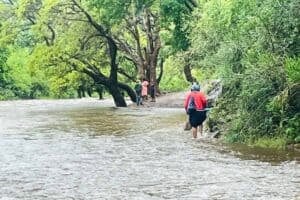One of the world's most influential political economists suggests how South Africa can extract itself from its economic morass.

The ANC looks for economic salvation in all the wrong places. It’s not to be found in slavish imitation of Xi Jinping’s authoritarian template for China’s developmental state. Or by following Karl Marx’s century-old map towards a socialist nirvana.
Nor, most implausibly of all, by chugging the ANC’s homebrew Kool-Aid of both the above, the heady draught of the national democratic revolution. The route to regaining our economic mojo is less glamorous, more prosaic.
ALSO READ: Why moms are turning to crime: The dark side of an unforgiving economy
When pressed for an example of how to extract South Africa from its economic morass, Ricardo Hausmann, one of the world’s most influential political economists and head of Harvard’s respected Growth Lab, suggested… Albania.
Not specifically Albania, but the likes of. What Hausmann was saying, in an interview with Ann Bernstein, head of the Centre for Development and Enterprise, following the release of the lab’s applied research project into the SA economy, was that South Africans should shed their mental shackles.
The way forward
Developmental success for a middle-income country like ours will not result from ideological formulations but from boxing clever, making quick and effective interventions that have worked elsewhere.
“SA had the engineering capacity, the financial capacity and the knowledge to fix the electricity problem. But ideology prevented the state from allowing that to happen. Certain ideologues … want to see not just electricity being supplied, but electricity being supplied by a state monopoly,” he said.
Paraphrasing former Chinese leader Deng Xiaoping, he said we appear to care more about the colour of the cat than whether the cat catches mice. Hausmann’s expertise is that of both scholar and practitioner.
ALSO READ: Work is needed to improve our economy
He’s behind several concepts that are now common currency in developmental economics and has a wealth of hands-on experience in helping developing countries to grow their economies. Like Albania, for instance.
The Harvard Growth Lab report noted that three decades after the end of apartheid, the economy is defined by stagnation and exclusion. The government’s current strategies are not achieving inclusion and empowerment.
It’s not working
Worse, what is being done to address the problems – preferential procurement policies and cadre deployment – is exacerbating the situation. The key problem is state collapse. It’s the “predominant driver” of our weakening economic performance and growing macroeconomic stress. But the problem is a lack of political will and commitment.
“Current reform momentum is unlikely to reverse this collapse because reforms are encountering systemic, deep-seated and underlying issues of political gridlock, ideology, patronage and an overburdening of state organisations with goals beyond their core missions and capabilities,” said the report.
ALSO READ: Increasing taxes to fund NHI will ‘destroy economy’ – expert
More informally, Hausmann said “the reason gridlock is overcome in other societies is that if you don’t fix it you lose the next election”. But the ANC feels it has no reason “to bite the bullet”.
On the upside, the report said SA is in a strong position to create new sources of comparative advantage by leveraging the global changes that the energy transition is creating. Hausmann also sketched a range of interventions to improve SA’s terrible labour participation rates.
It all comes down to, he said, focusing less on redistribution to compensate people for their exclusion. Instead, “we want to see investments that promote inclusion, because growth through inclusion is going to be a win for growth and for a win for reducing inequality”.
“There’s so much talent in SA that if we just fix enough things, people can transform the place.”






